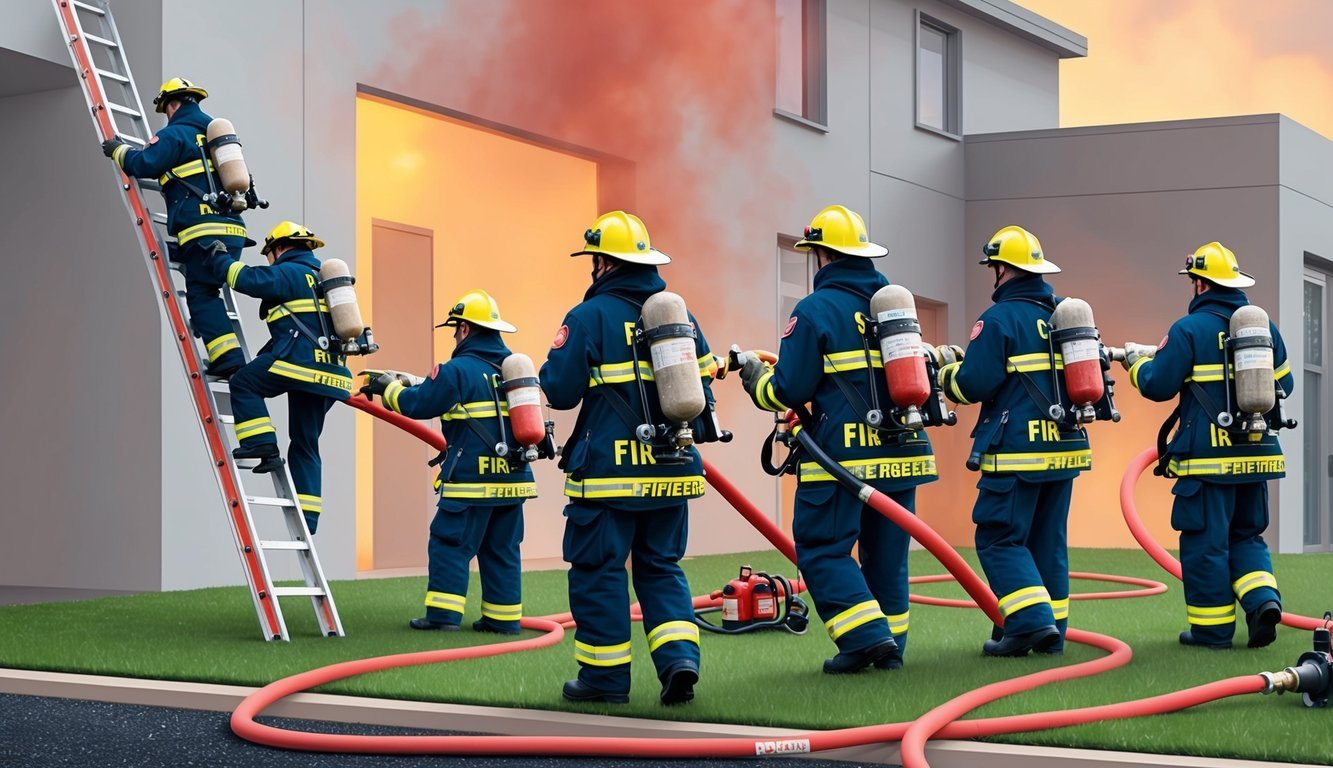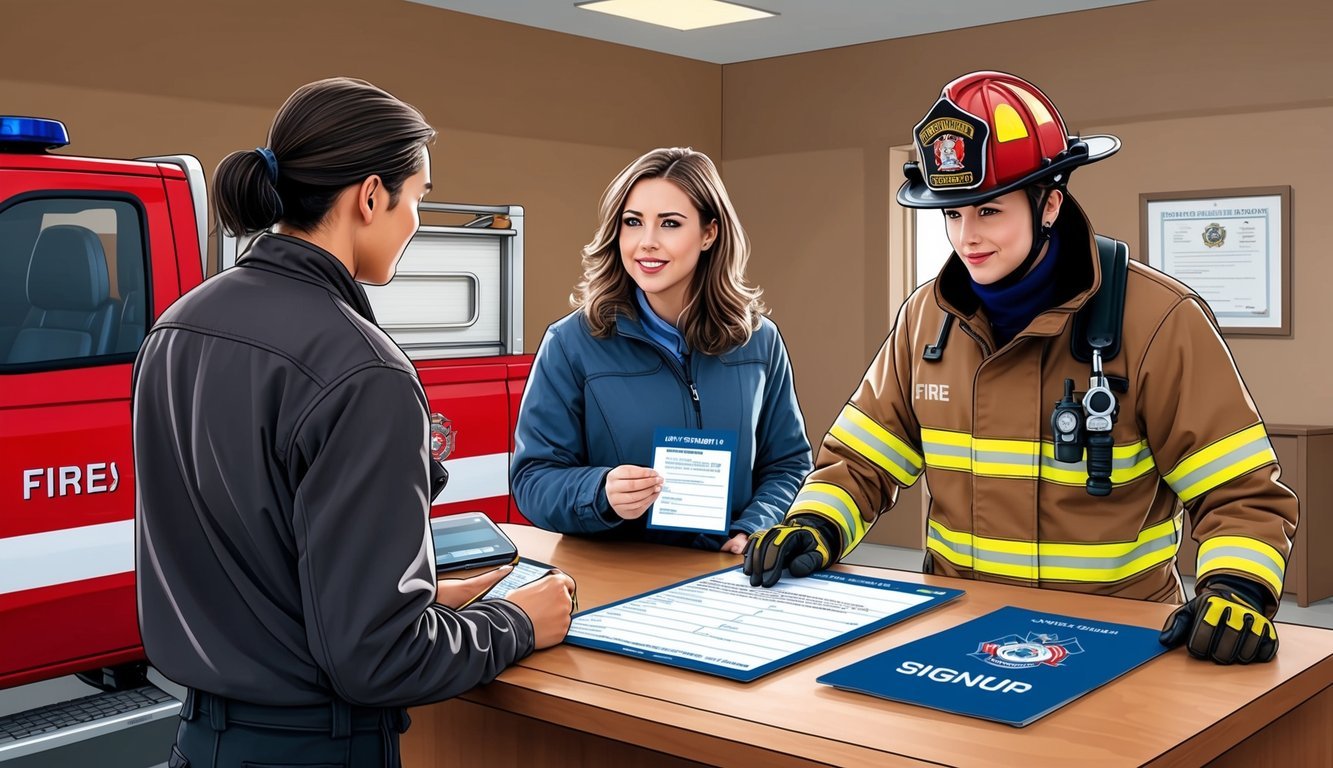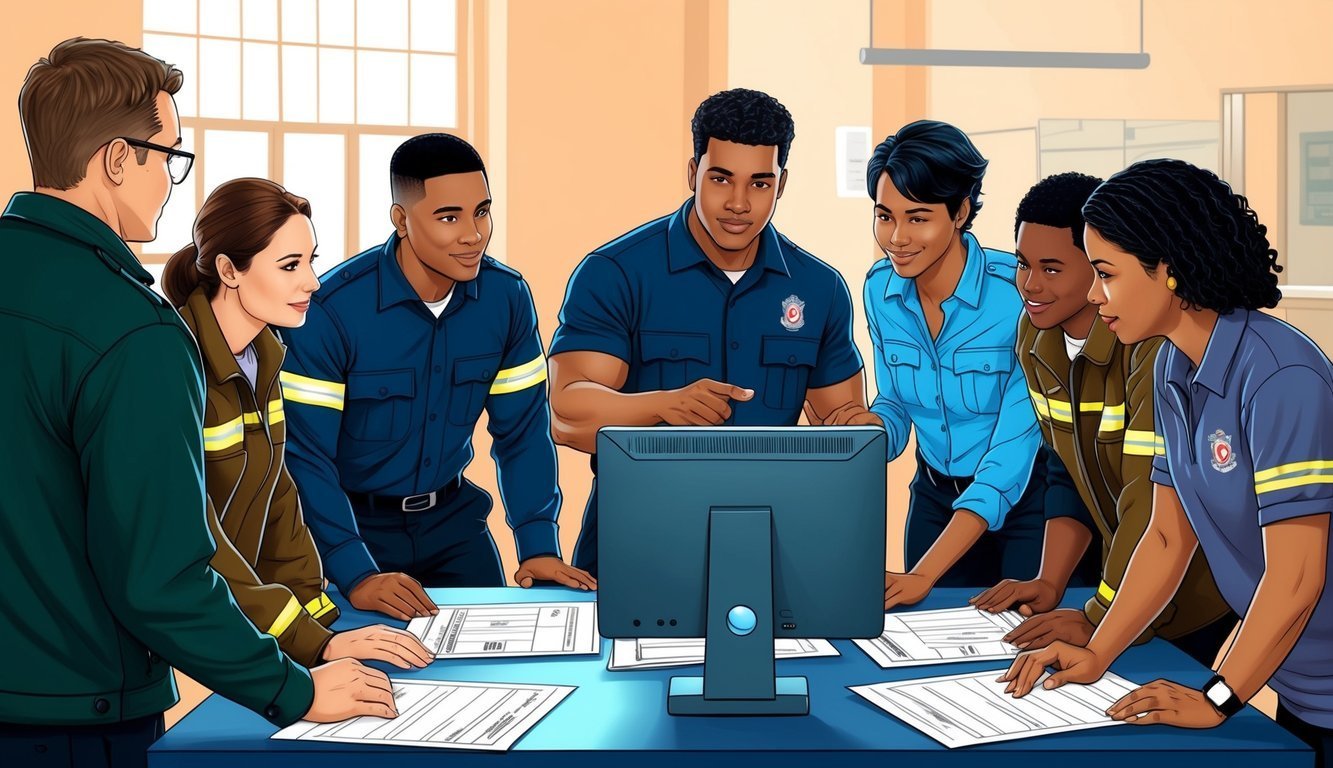Becoming a firefighter? Now that’s a thrilling adventure! It’s one of those careers that lets you serve your community and make a real difference.
Many folks dream about joining the fire service but often wonder how to kick things off.
First things first, if you’re thinking about becoming a firefighter, you need to meet some basic requirements.
You’ve got to be at least 18, have a high school diploma or GED, and a valid driver’s license.
Easy, right?

The journey to becoming a firefighter has a few steps.
You’ll need to pass some written exams, physical fitness tests, and interviews—nothing too crazy if you’re prepared!
Gaining some fire service training or experience can hugely help.
Many aspiring firefighters start off as volunteers, which not only looks good on your resume but also gives you valuable skills and knowledge.
Trust me—it’s a great way to get your feet wet!
When you’re ready to apply, keep your eyes peeled for job openings at local fire departments.
The hiring process can be pretty competitive, so being well-prepared is key.
If you don’t see any current openings, don’t sweat it! You can sign up for email alerts about new firefighter opportunities in your area.
Key Takeaways
- Know the basic age, education, and license requirements for firefighters.
- Volunteering can give you the fire service experience you need.
- Be ready for tests, background checks, and interviews during the hiring process.
Getting Started on the Firefighting Journey
Thinking about becoming a firefighter? It’s exciting, but it requires a good bit of dedication and preparation.
You’ll need to meet specific requirements, go through a thorough application process, and get ready to tackle a variety of tests.
Understanding the Basic Requirements
To kick off your firefighting career, you need to tick off some basic boxes.
Most fire departments are looking for a high school diploma.
Some might expect a bit more in terms of education or training.
Being at least 18 years old and having a valid driver’s license is a must.
A lot of departments are also on the lookout for EMS training, which could mean being an EMT or paramedic.
Different states have their own rules, too.
For example, New York City has special resources for aspiring firefighters.
It’s wise to check with your local fire department to understand what’s expected.
The Application Process
Ready to apply? Brace yourself for a thorough process.
Fire departments want to make sure they pick the best candidates out there.
The typical steps include:
• Filling out an application
• Tackling a written exam
• Passing a physical fitness test
• Going through background checks
• Having a drug screening
Some departments might throw in a psychological exam to ensure you can handle the stresses of the job.
Always be honest in your application.
A little white lie? It could cost you a shot at getting hired!
Preparation for Exams and Physical Fitness
Getting ready for firefighter exams isn’t just a walk in the park; it takes time and effort.
The written exam tests your knowledge on firefighting basics, so you might want to brush up on fire science and emergency procedures.
And let’s be real—physical fitness is crucial.
Firefighters need to be strong and have great stamina.
It’s not just about looking good in gear; you need to be fit as a fiddle!
Start by incorporating regular workouts into your routine, focusing on:
• Cardio exercises
• Strength training
• Flexibility
Most fire departments provide details about what their physical tests entail, making it easier for you to train for specific tasks like climbing stairs with heavy gear or dragging hoses.
Advancing Through Training and Beyond

Once you’re in the firefighting world, there’s plenty of room to grow your skills and advance your career through training and education.
The fire service is full of opportunities for learning and specialization.
Fire Academy Training
Fire academy? That’s where new firefighters hit the ground running.
Recruits train hard for several weeks or months, learning everything from handling fire hoses to using breathing equipment and performing rescues in challenging situations.
It’s not all brawn either; recruits study fire behavior, emergency medical care, and safety procedures.
If you’re curious about getting into a fire academy, check out how to sign up through local fire departments or community colleges.
- How to extinguish different types of fires
- Using firefighting tools and gear
- Performing various rescues
- Giving basic medical attention
It’s a tough gig at the academy, where you’ll be pushed physically and mentally.
Teamwork and safety skills are a big part of the training.
And just because you graduate doesn’t mean the learning stops! Firefighters continue to train on the job, attending refresher courses that keep them sharp and ready for any emergency.
Specializations and Continuing Education
Firefighters can choose specialized areas to dive deeper into.
Here are a few options:
- Handling hazardous materials
- Urban search and rescue
- Fire investigation
- Emergency medical services (EMS)
To specialize, firefighters take additional classes and earn certifications.
Many even pursue fire science or emergency management in college.
And guess what? Many departments offer financial assistance for continued education, which can lead to promotions.
You could climb the ranks and become a:
- Lieutenant
- Captain
- Battalion Chief
Keeping up with new techniques is crucial.
Firefighters who continue learning and growing not only enhance their careers but also get better at saving lives!
Frequently Asked Questions

Thinking about becoming a firefighter? There’s a lot to consider in terms of steps, qualifications, and training requirements.
The application process can vary quite a bit from department to department.
What’s the process for applying to be a firefighter?
The process typically kicks off when you submit your application to the fire department.
You’ll tackle written and physical tests afterward.
If you pass, you’ll move on to interviews and background checks.
Some departments also require medical exams and drug screenings.
Honestly, the whole process can span several months!
What kind of training do you need before you can fight fires?
New firefighters undergo extensive training at a fire academy.
It covers everything from fire behavior to rescue techniques and emergency medical care.
You’ll get hands-on practice with firefighting gear, too.
Training length can vary, but expect several weeks to months, depending on the department.
Are there any special qualifications needed to become a firefighter?
Yes! Firefighters need at least a high school diploma or GED.
Many departments prefer candidates with some college education or EMT certification.
And don’t forget—good physical fitness is crucial.
Candidates must pass strength and endurance tests, plus have a valid driver’s license.
Is it possible to join a fire department with no prior experience?
Absolutely! Many fire departments are open to hiring folks without previous firefighting experience because they provide all the necessary training for new recruits.
Some departments even offer volunteer opportunities to help you gain some experience.
It’s a smart way to get started in the field!
How often do firefighter exams take place?
Exams vary by department.
Some larger cities hold them annually or every few years.
Smaller departments might only test when they have openings.
It’s best to check with the specific departments about their exam schedules.
What’s the application like for a firefighting role?
Applications usually ask for your personal info, educational background, and work experience.
You might also see questions about your physical fitness and motivation for wanting to be a firefighter.
Some departments prefer online applications, while others stick with paper forms.
Showing genuine motivation for the job can really help your application stand out.

